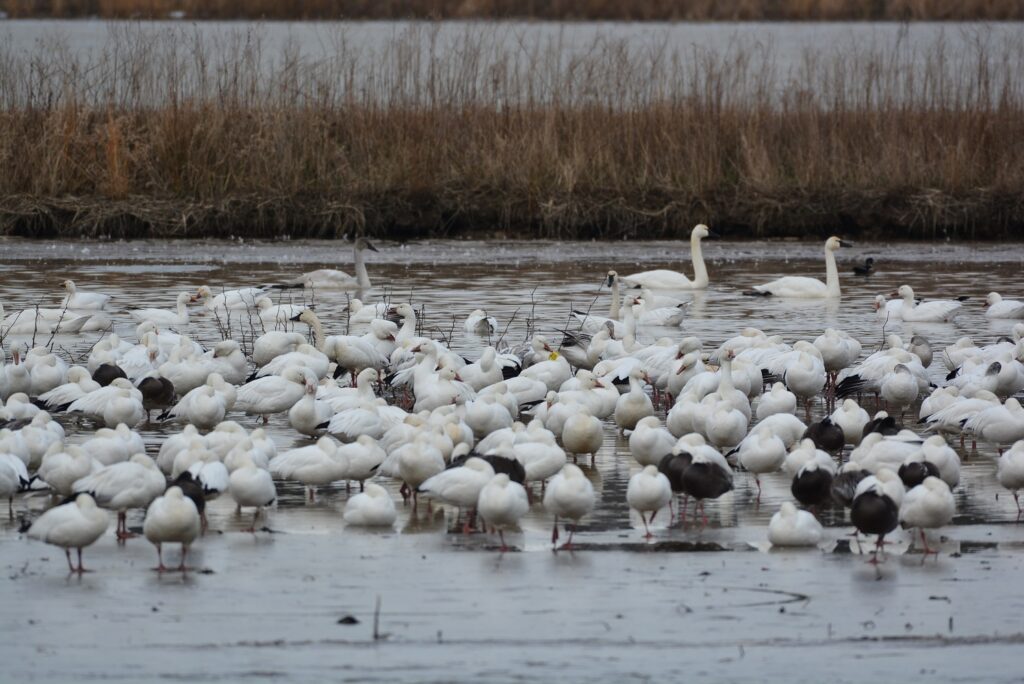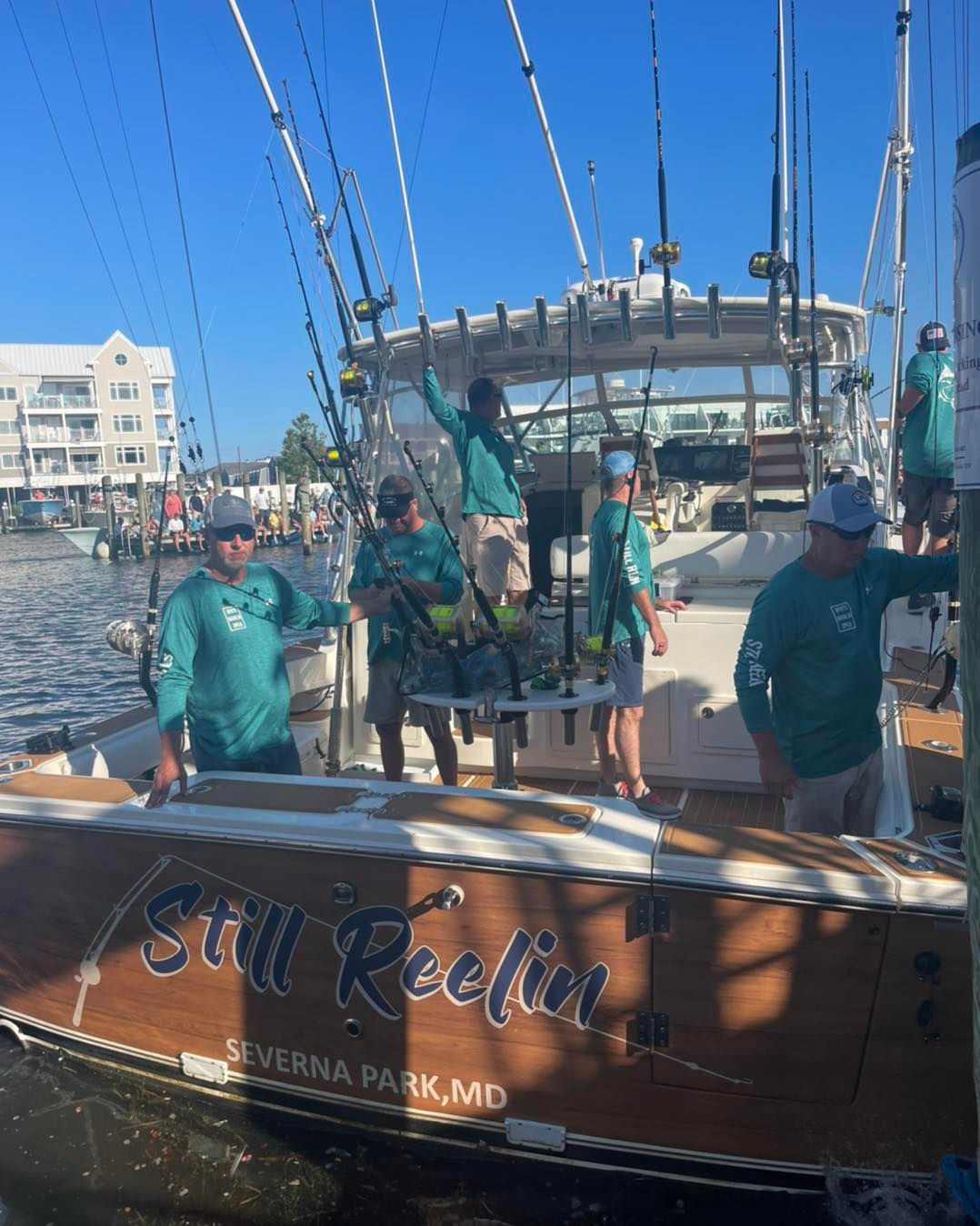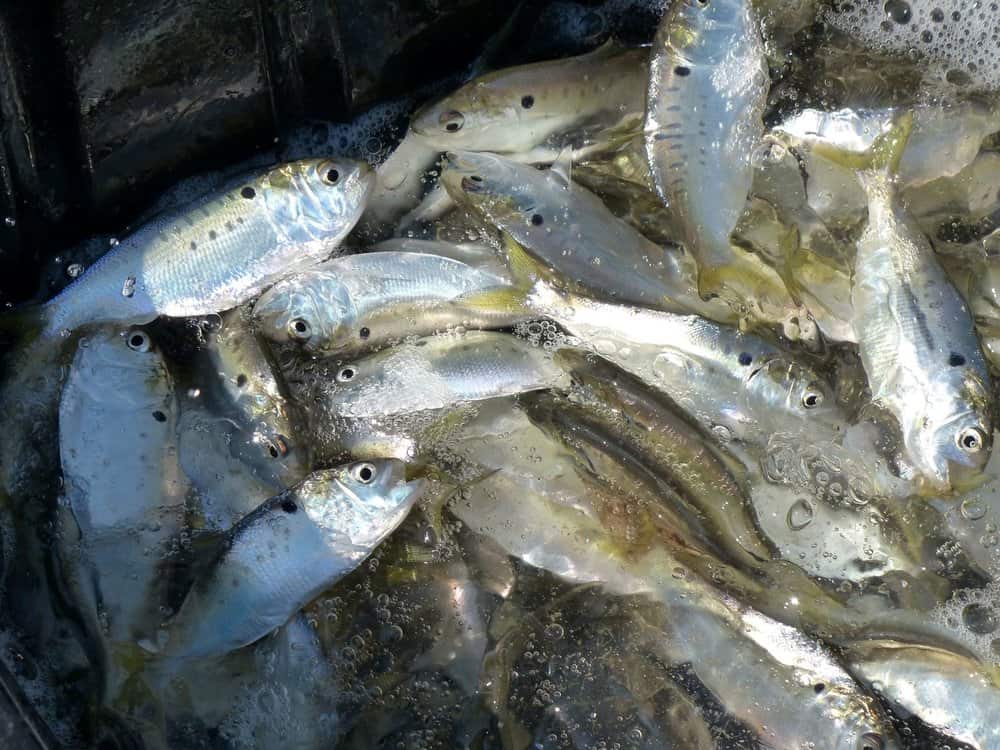A virus that is low-risk for humans but can be devastating to birds is causing concern in the Chesapeake Bay region and the Delmarva Peninsula. Bird flu, officially called Highly Pathogenic H5 Avian Influenza (HPAI), has been found in wild waterfowl on Maryland’s Eastern Shore along with a growing number of chicken farms.
Seven dead snow geese, found in Worcester and Dorchester counties, are confirmed to have had the airborne respiratory virus. Snow geese are currently in season for hunting, and they are a popular draw among bird watchers and wildlife photographers on the Delmarva peninsula this time of year.
The bird flu detected in wild geese poses a risk for poultry owners and business operators, because the virus spreads quickly among birds with a mortality rate up to 100%. In Delaware and on the Eastern Shores of Maryland and Virginia, poultry is one of the largest industries. According to the Delmarva Chicken Association, the chicken community generated $4.4 billion and raised more than 600 million chickens in 2023.
While the association says Delmarva chicken businesses have been resilient to bird flu so far, national data show that the virus is threatening egg suppliers nationwide. Department of Agriculture numbers show than 20 million egg-laying chickens died in the U.S. just in the last quarter, a record high. The death toll includes the flocks that must be culled when infection is discovered in a flock.
Last week in Caroline County, Maryland, bird flu was detected during routine sampling of a boiler operation by the state Department of Agriculture. This is the first case detected at a Maryland commercial poultry operation since 2023. Just four days later, routine testing found positive cases at a Queen Anne’s County broiler farm, too. Cases have also been detected at two Kent County, Delaware, operations in the last month. All of the birds have been culled and none will enter the food system, agriculture department officials say. When farmers are forced to cull their flock due to infection, a United States Department of Agriculture program offers them financial compensation.
While Eastern Shore farmers must remain vigilant with biosecurity measures, wildlife observers and hunters should also take precautions. The Maryland Department of Natural Resources (DNR) says that hunting remains safe, but advises never to harvest or handle wild birds that are sick or found dead. Hunters should double-bag their harvests and wash their hands or use sanitizer after handling game. As always, anyone cooking harvested waterfowl should cook it to 165 degrees to kill any viruses or bacteria.
Hiking and bird watching are safe, as the risk to human health is fairly low. However, if you are out in nature and see sick or dead birds, please do not handle or move them, and instead report them to 1-877-463-6497.
DNR tells us that anyone who fills birdfeeders for the winter should feel free to continue, as songbirds carry very low risk of getting or spreading bird flu.




